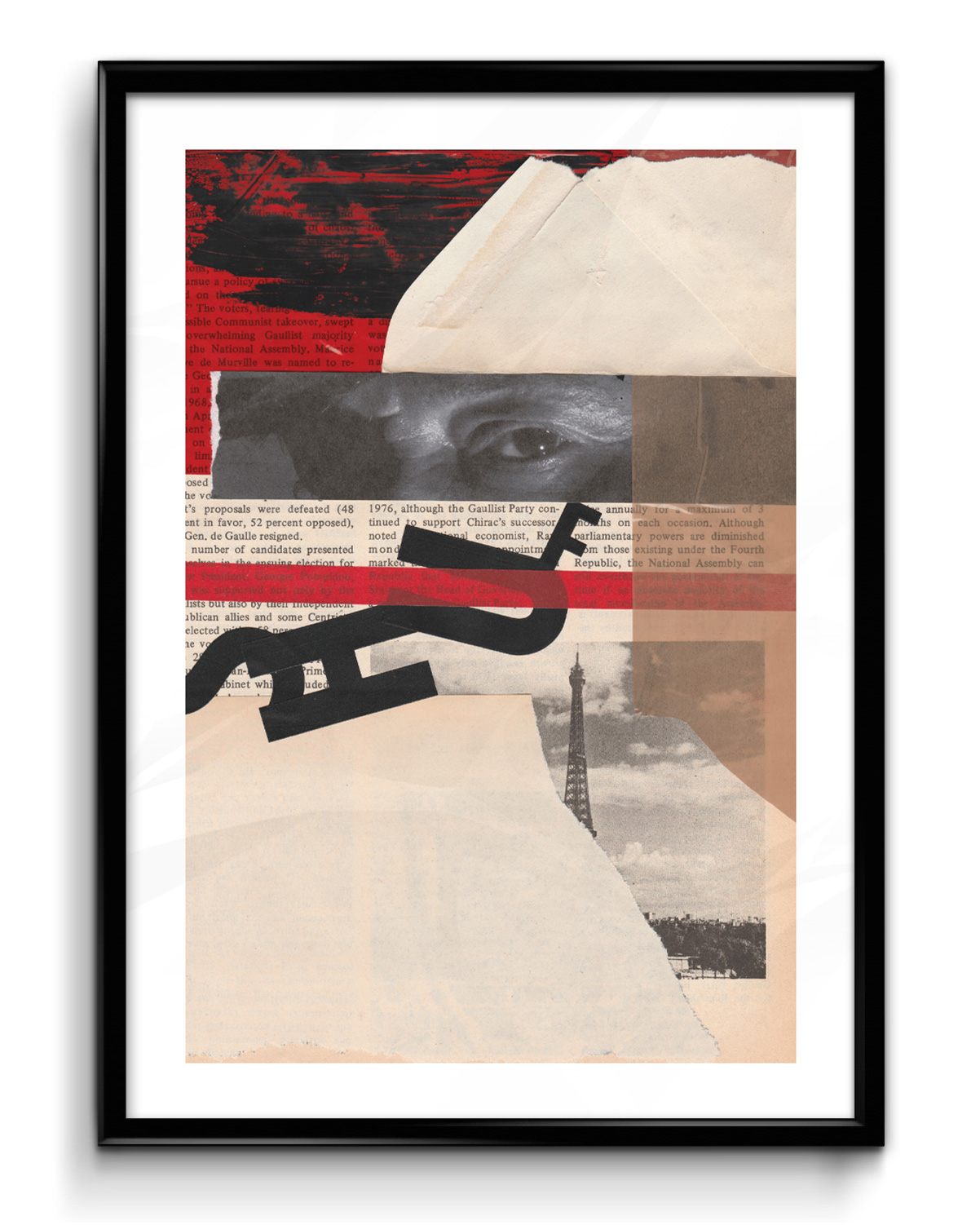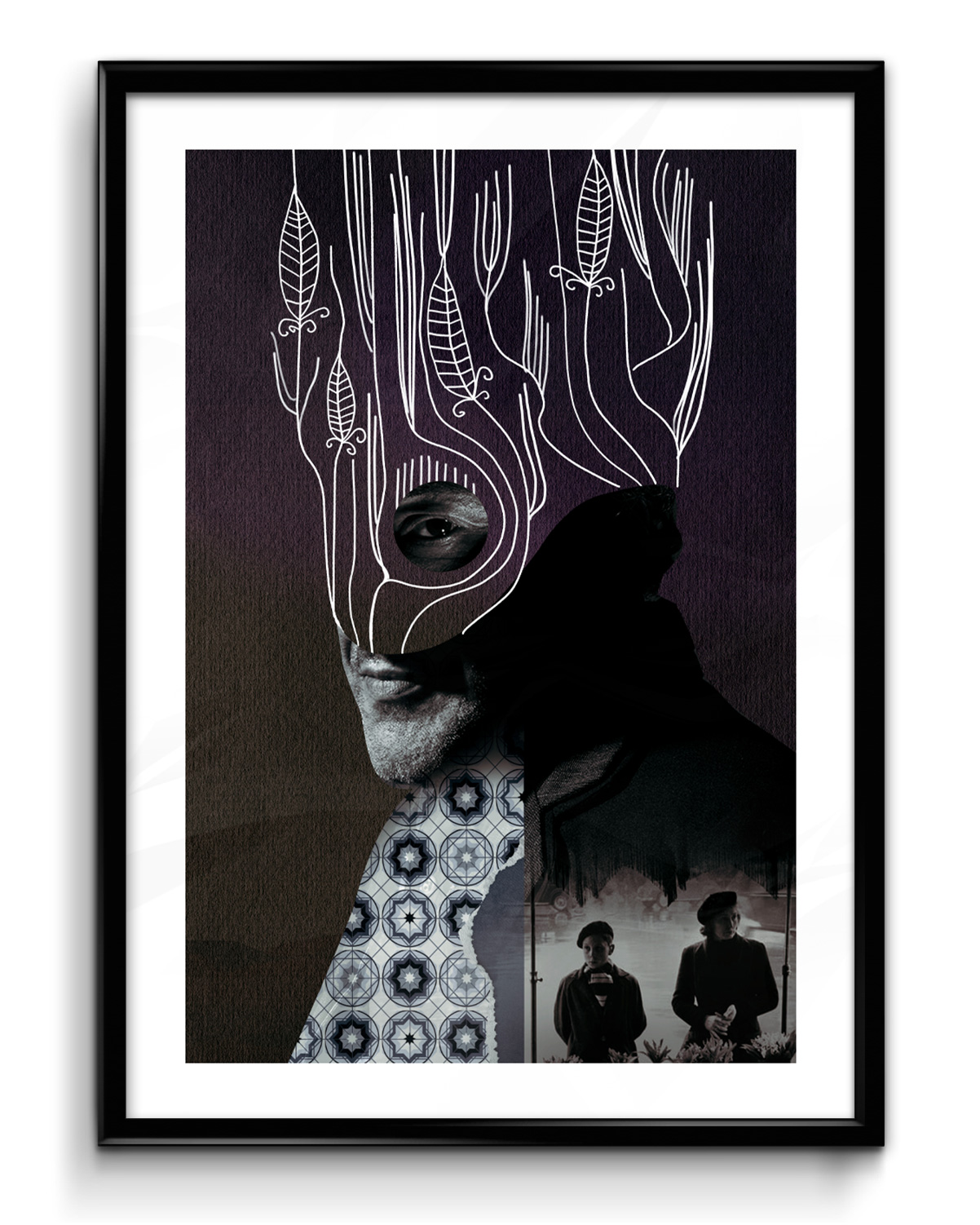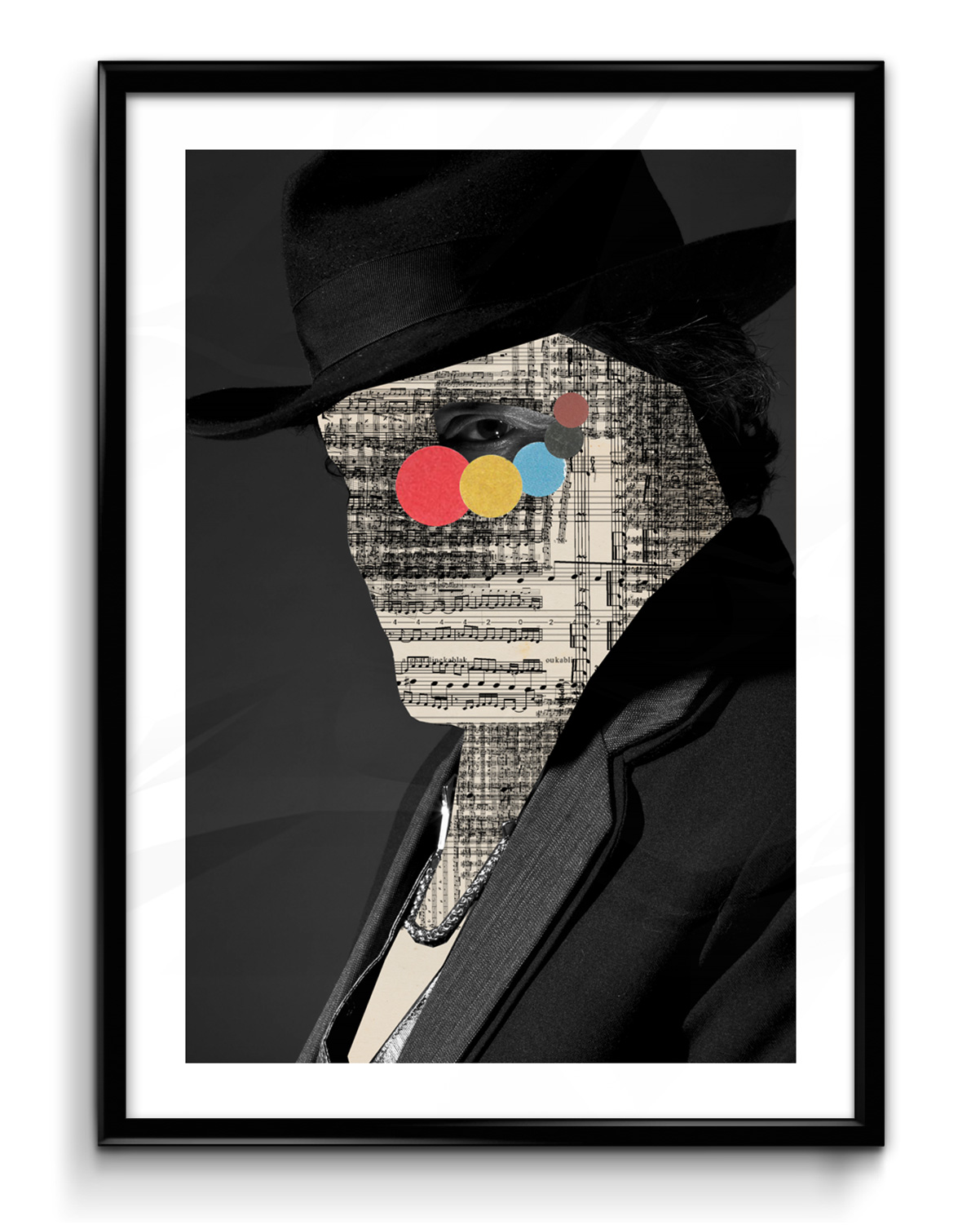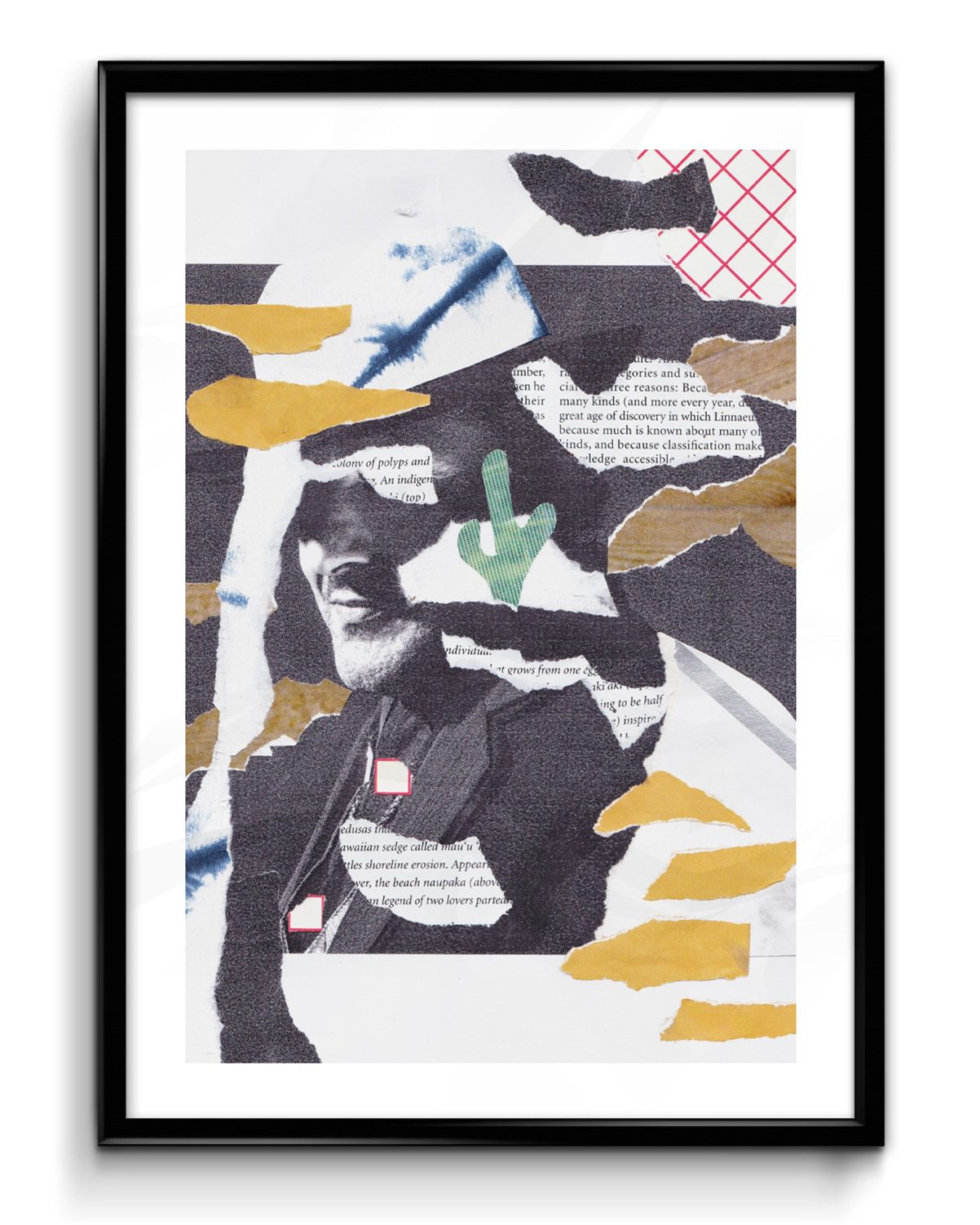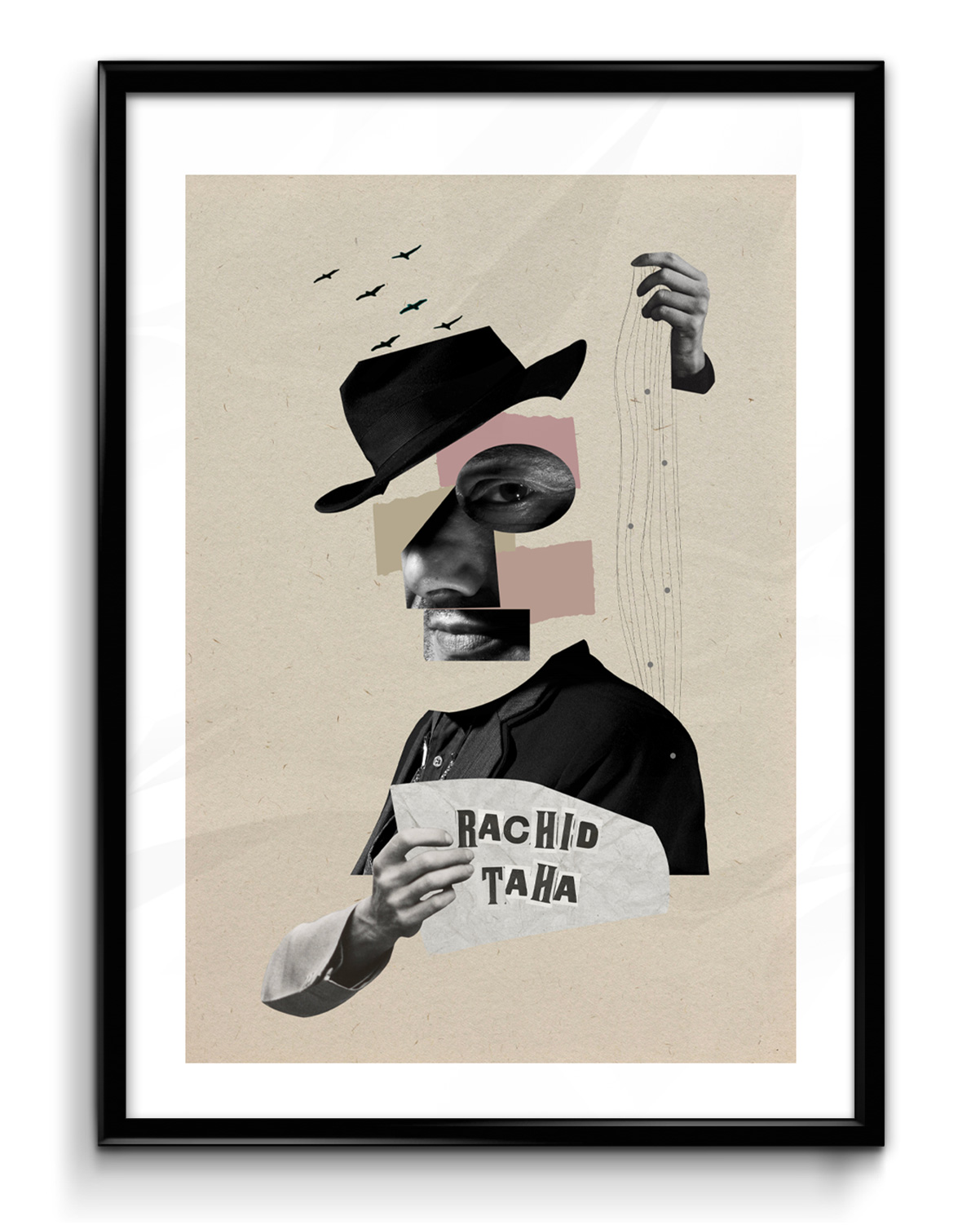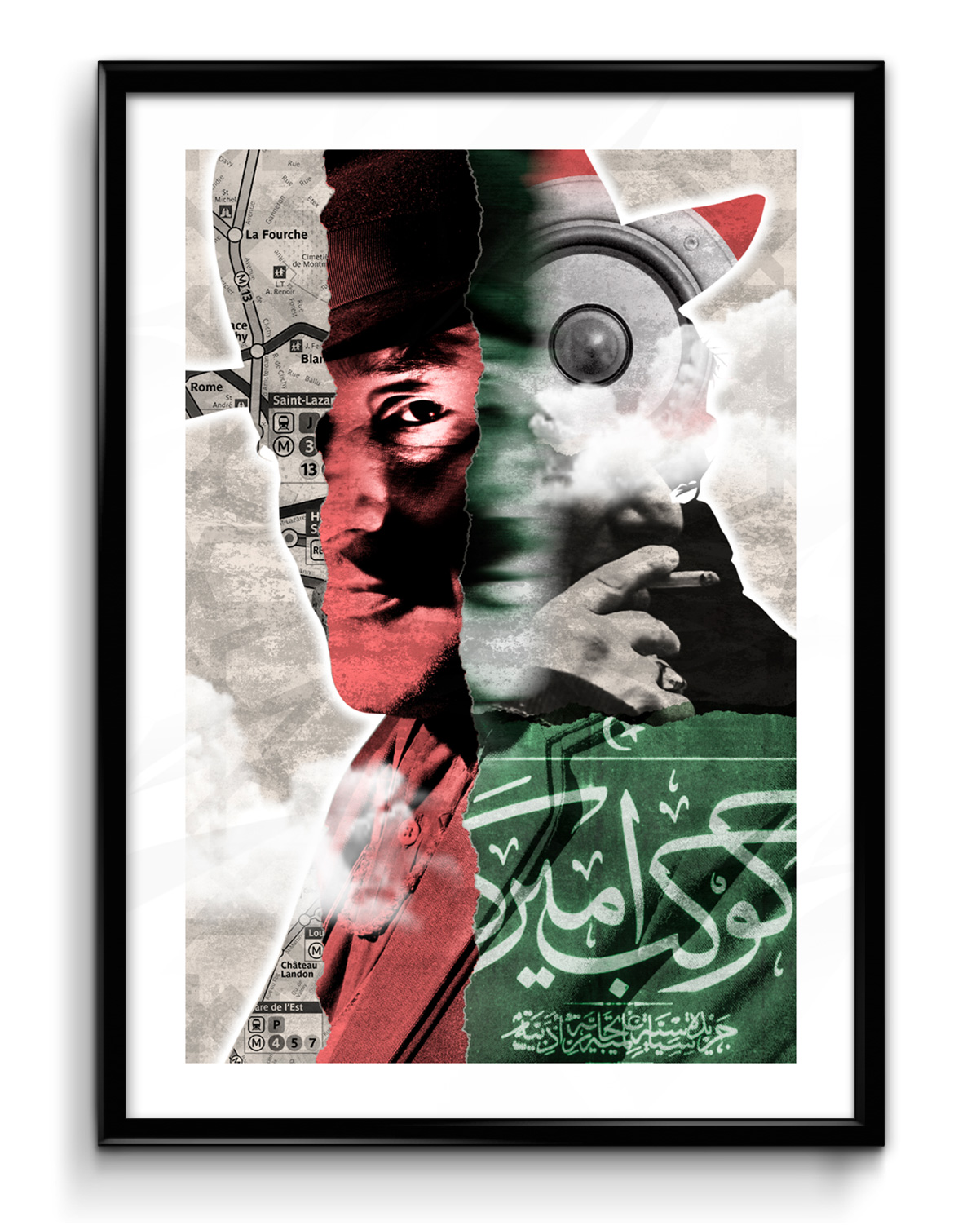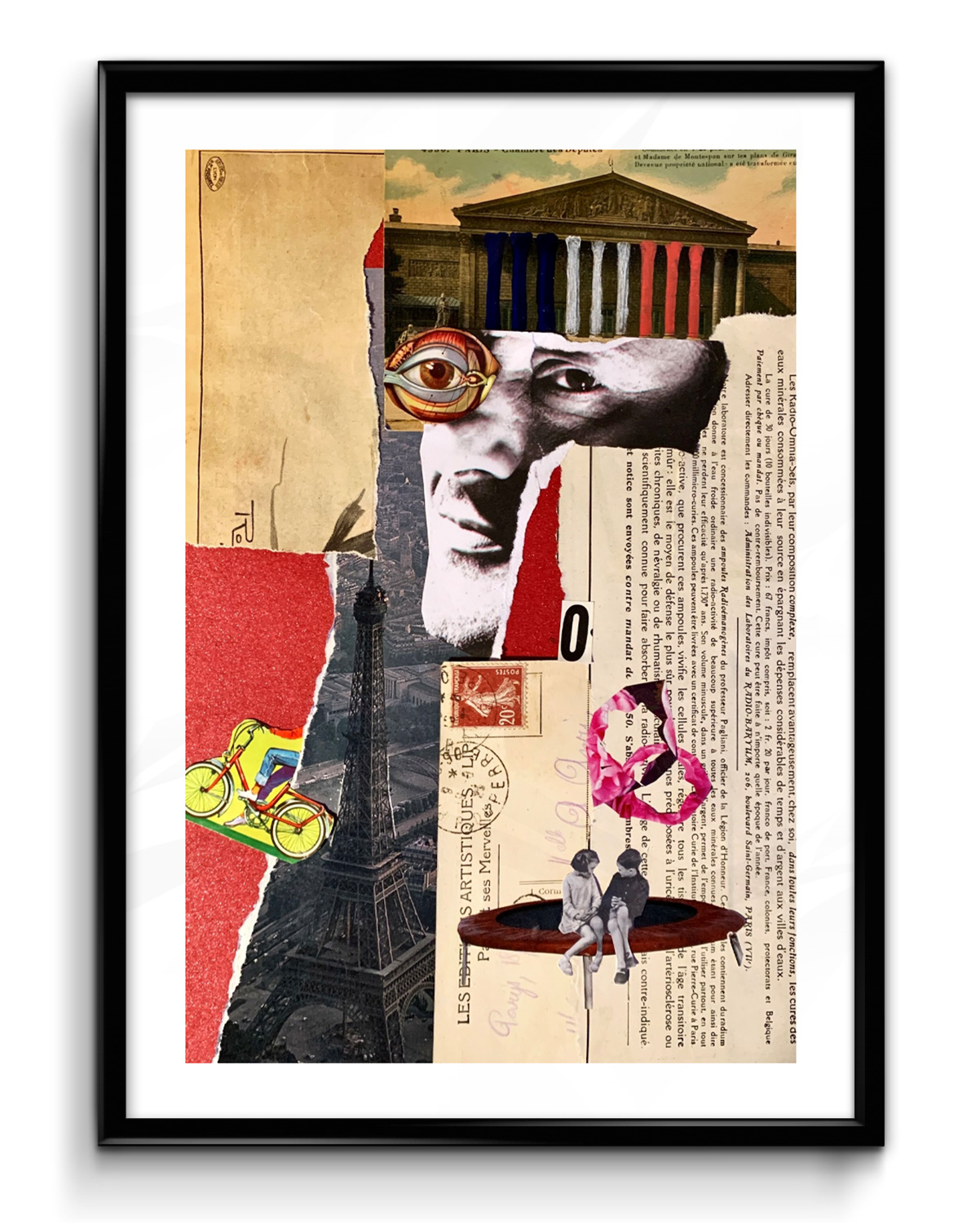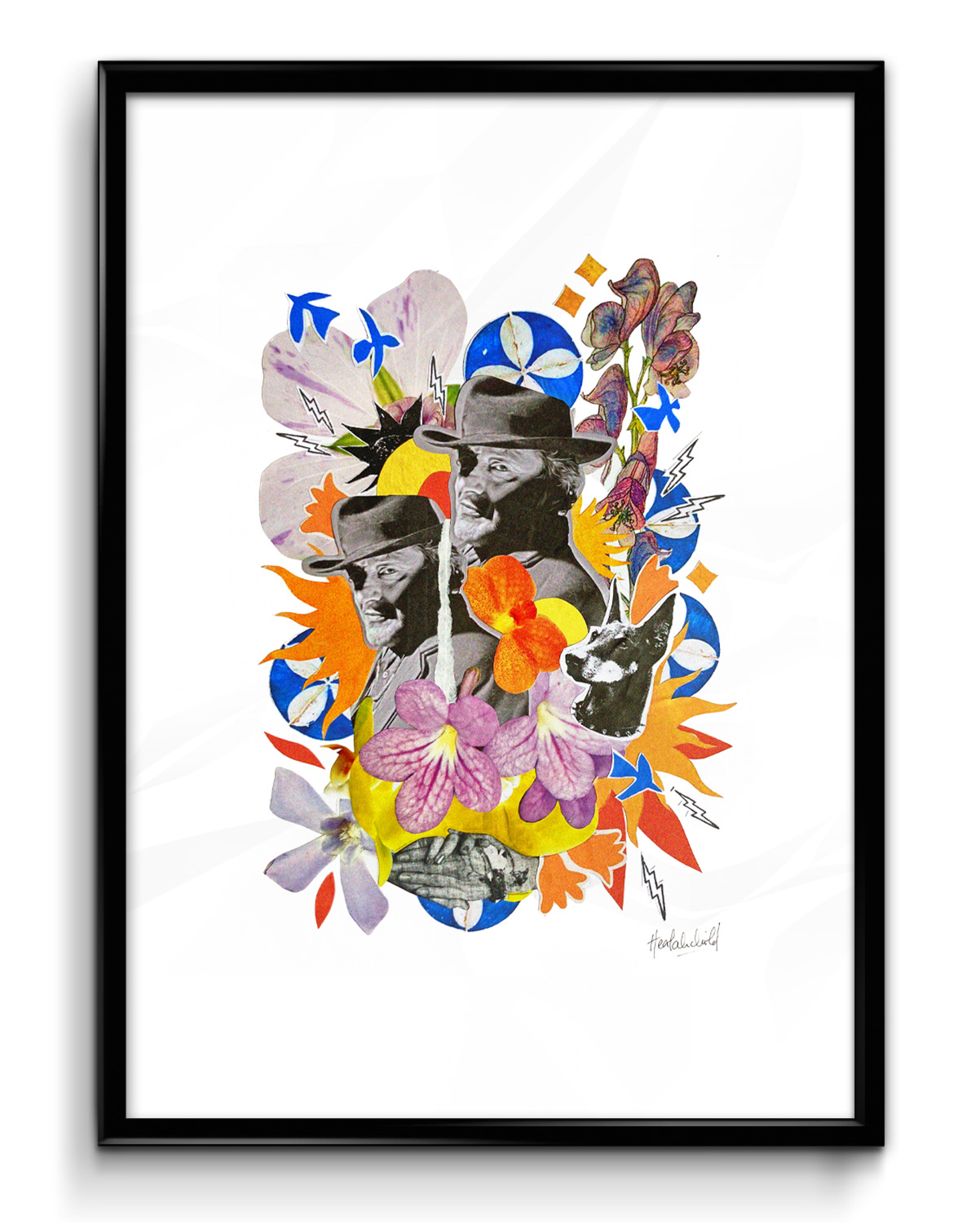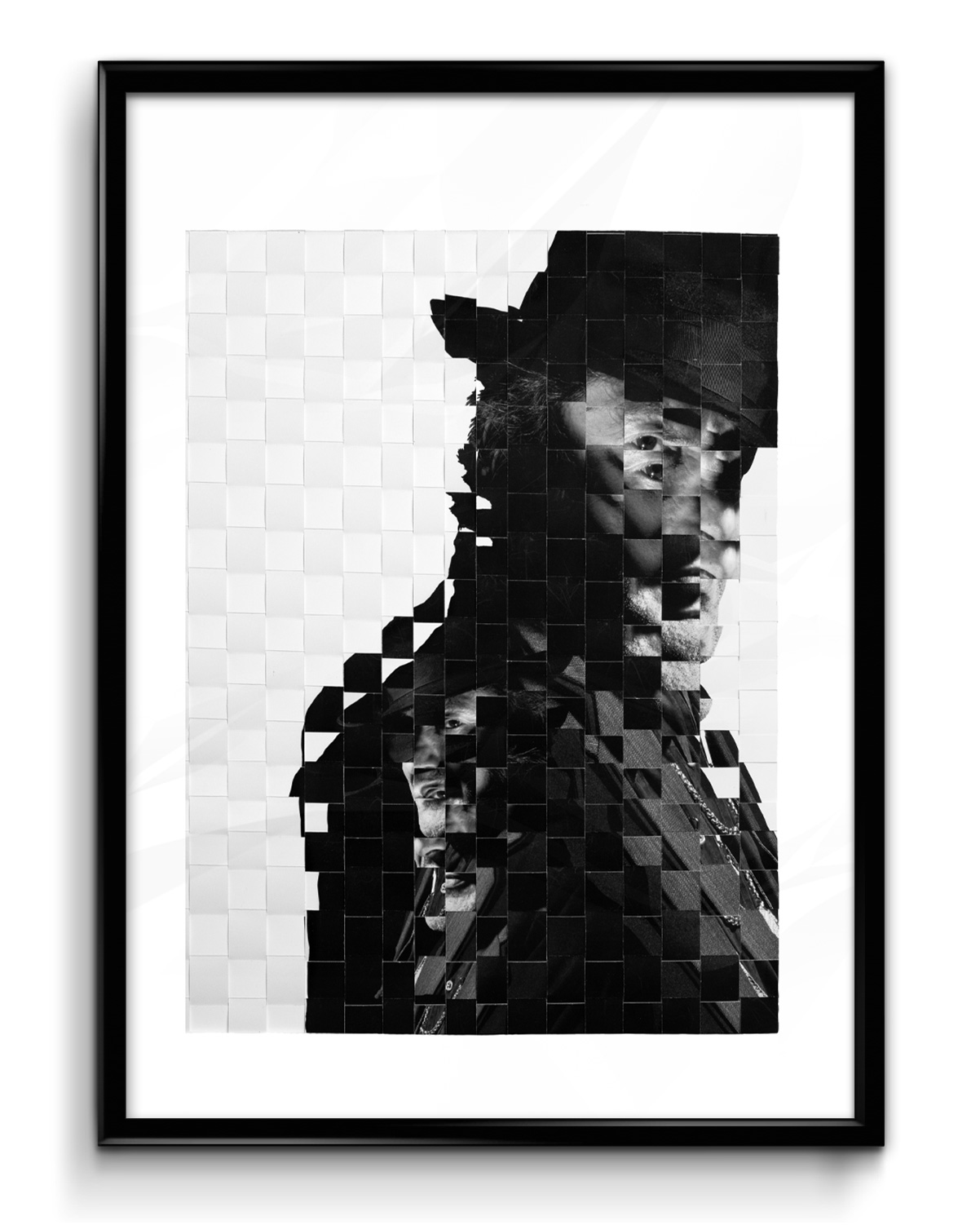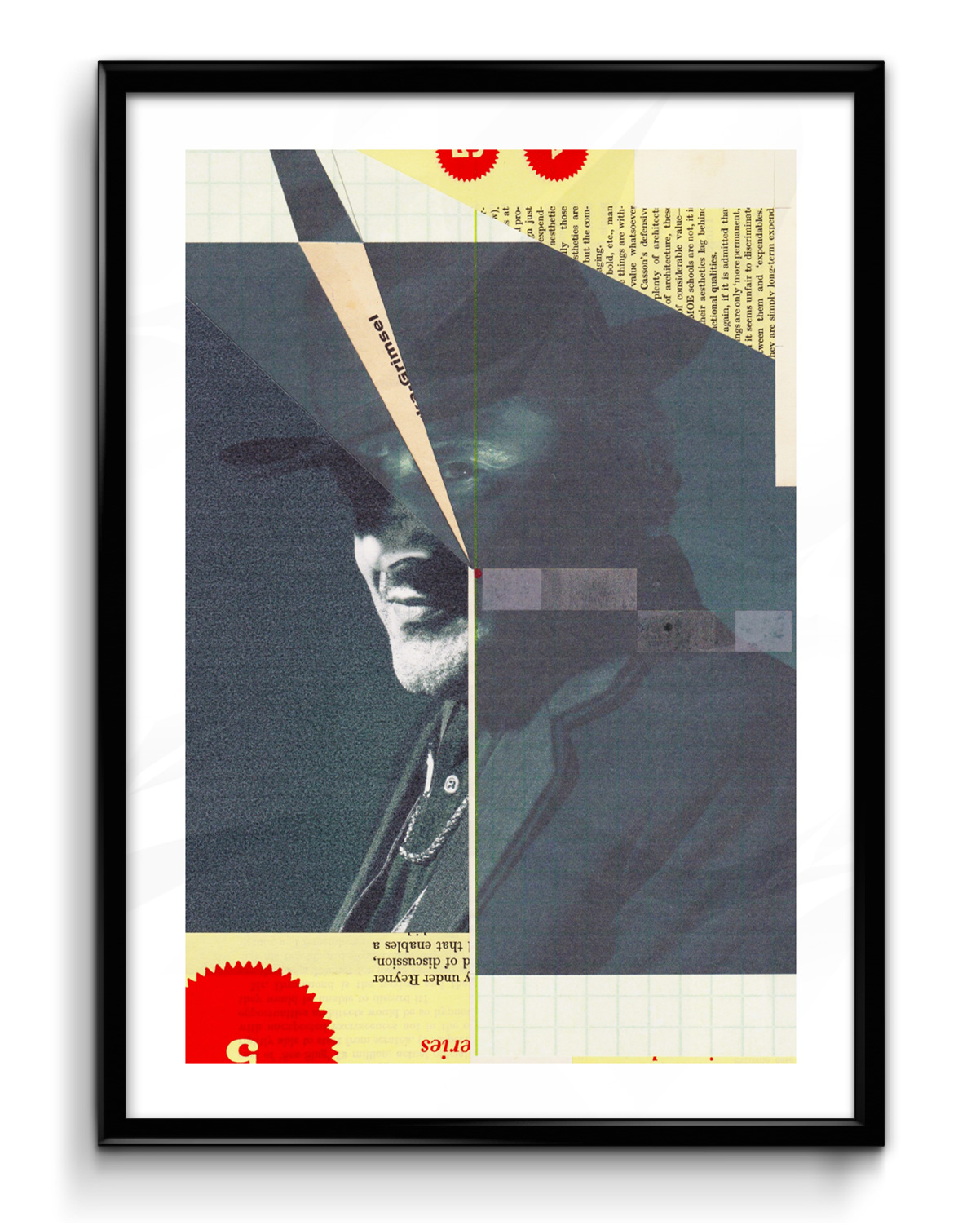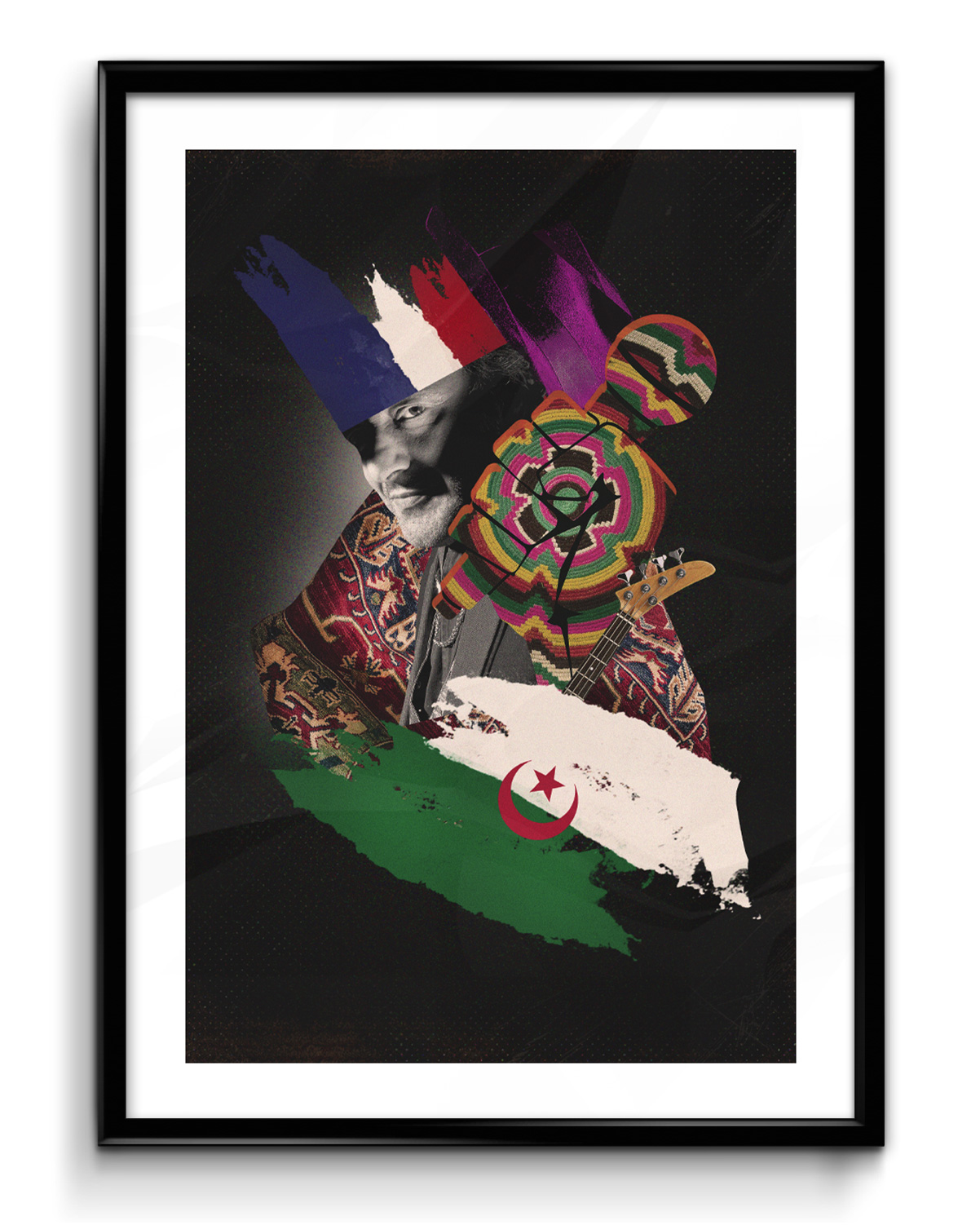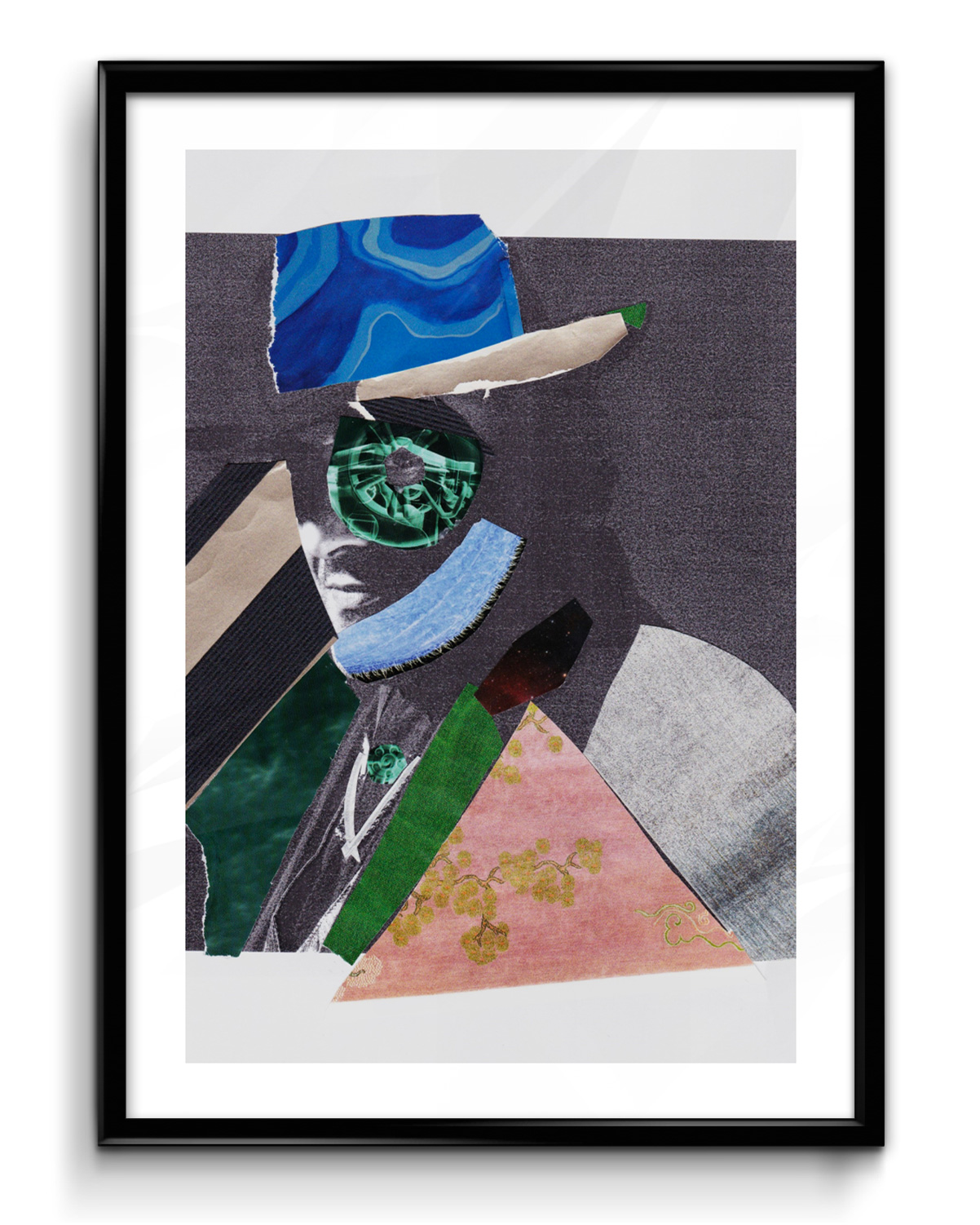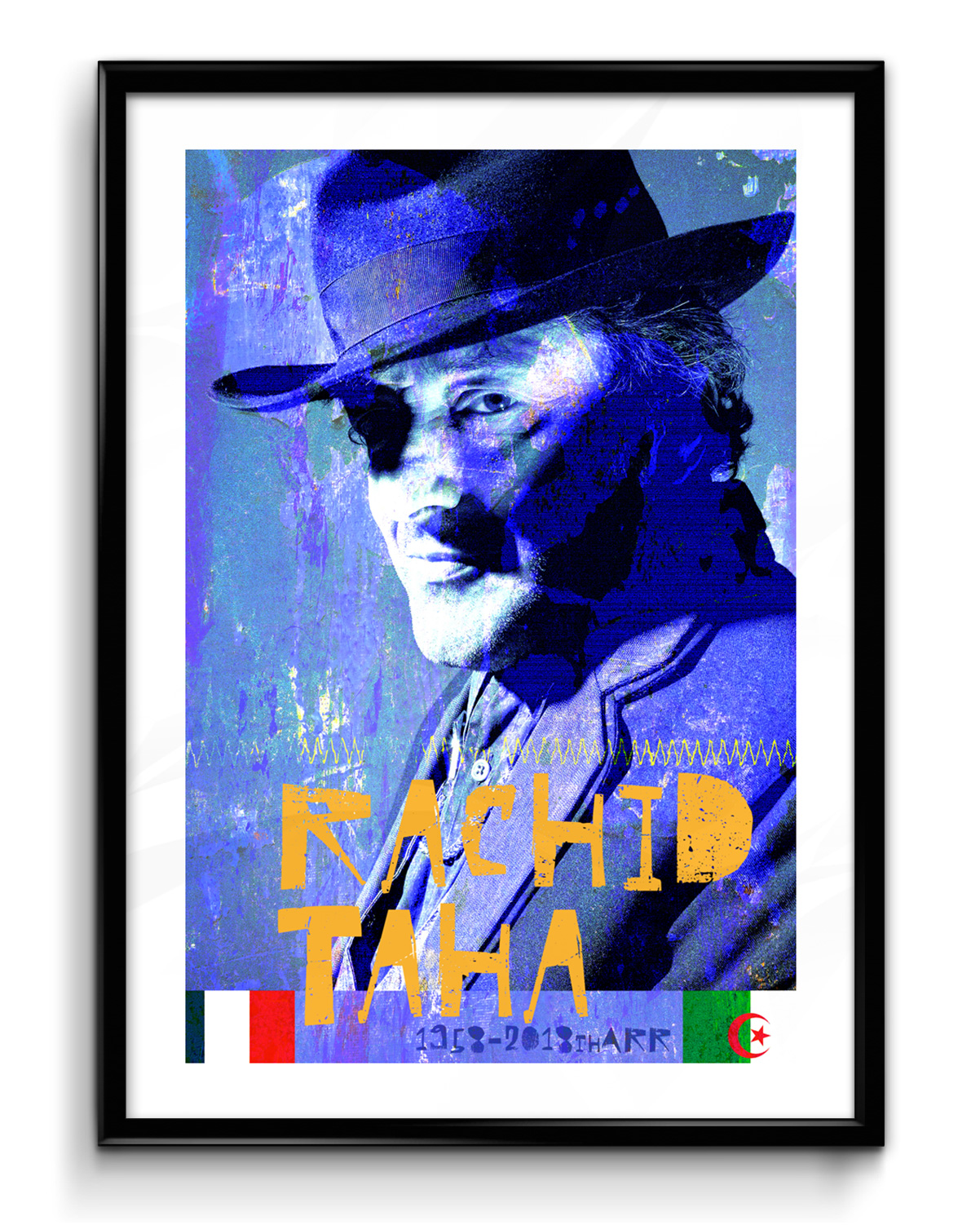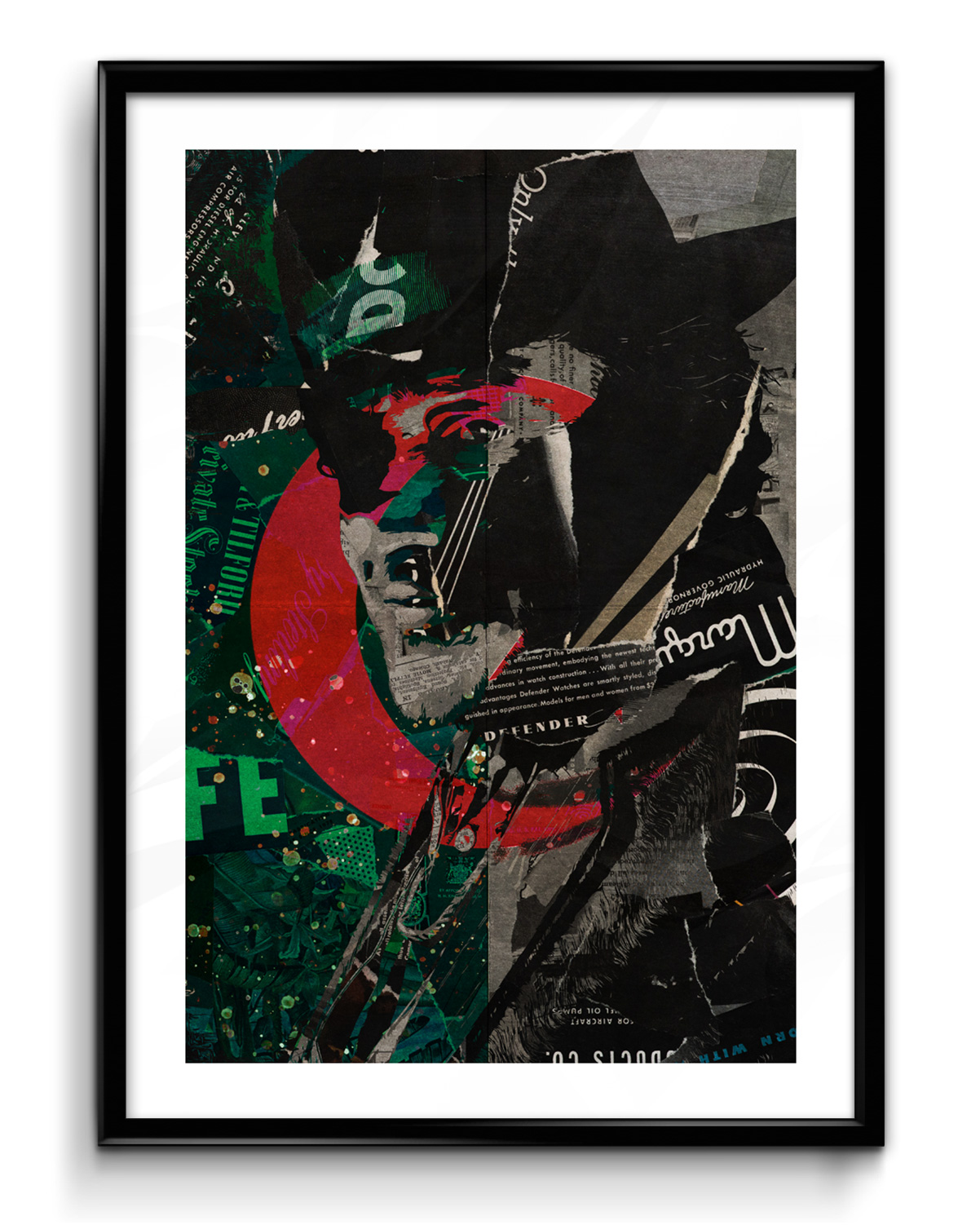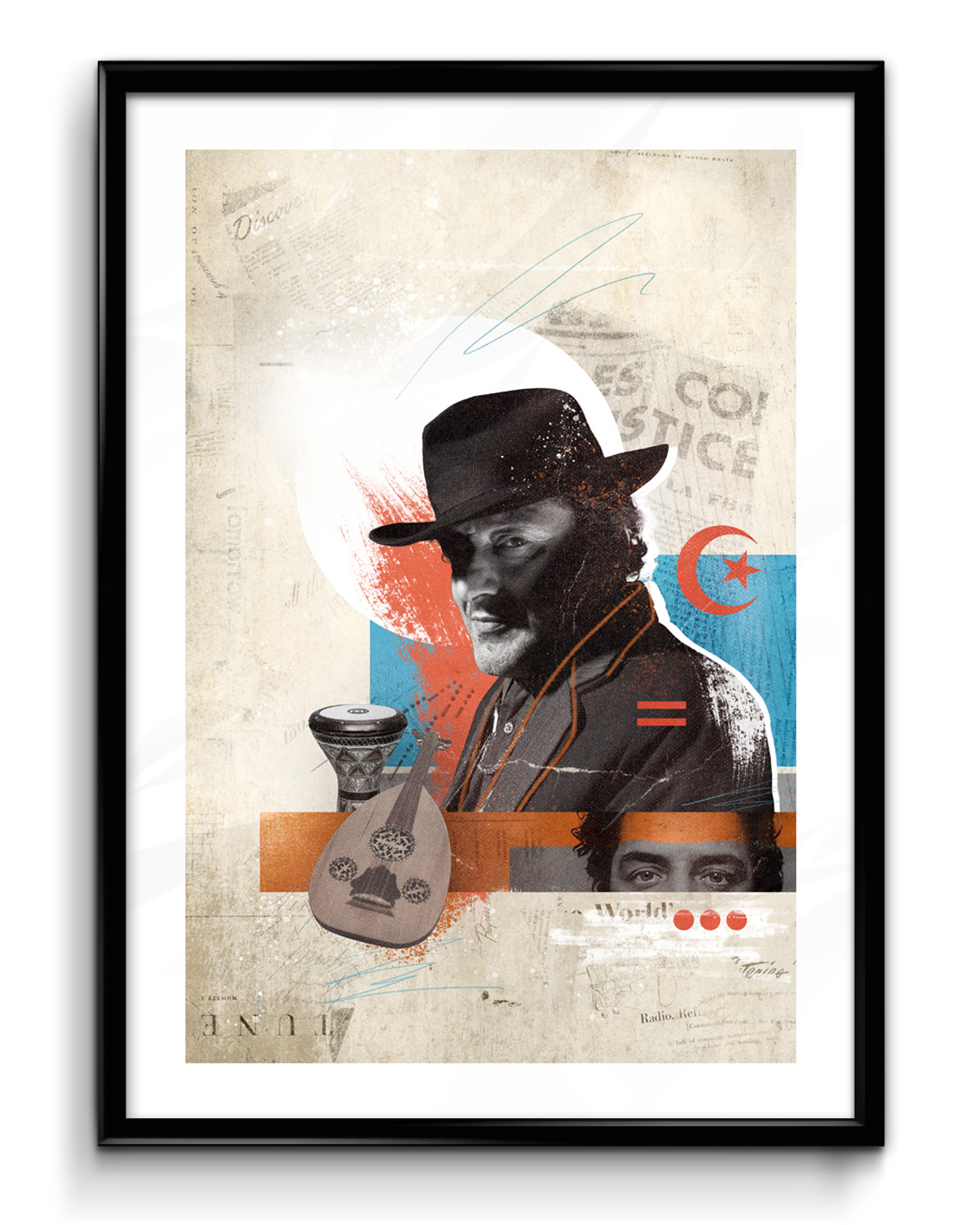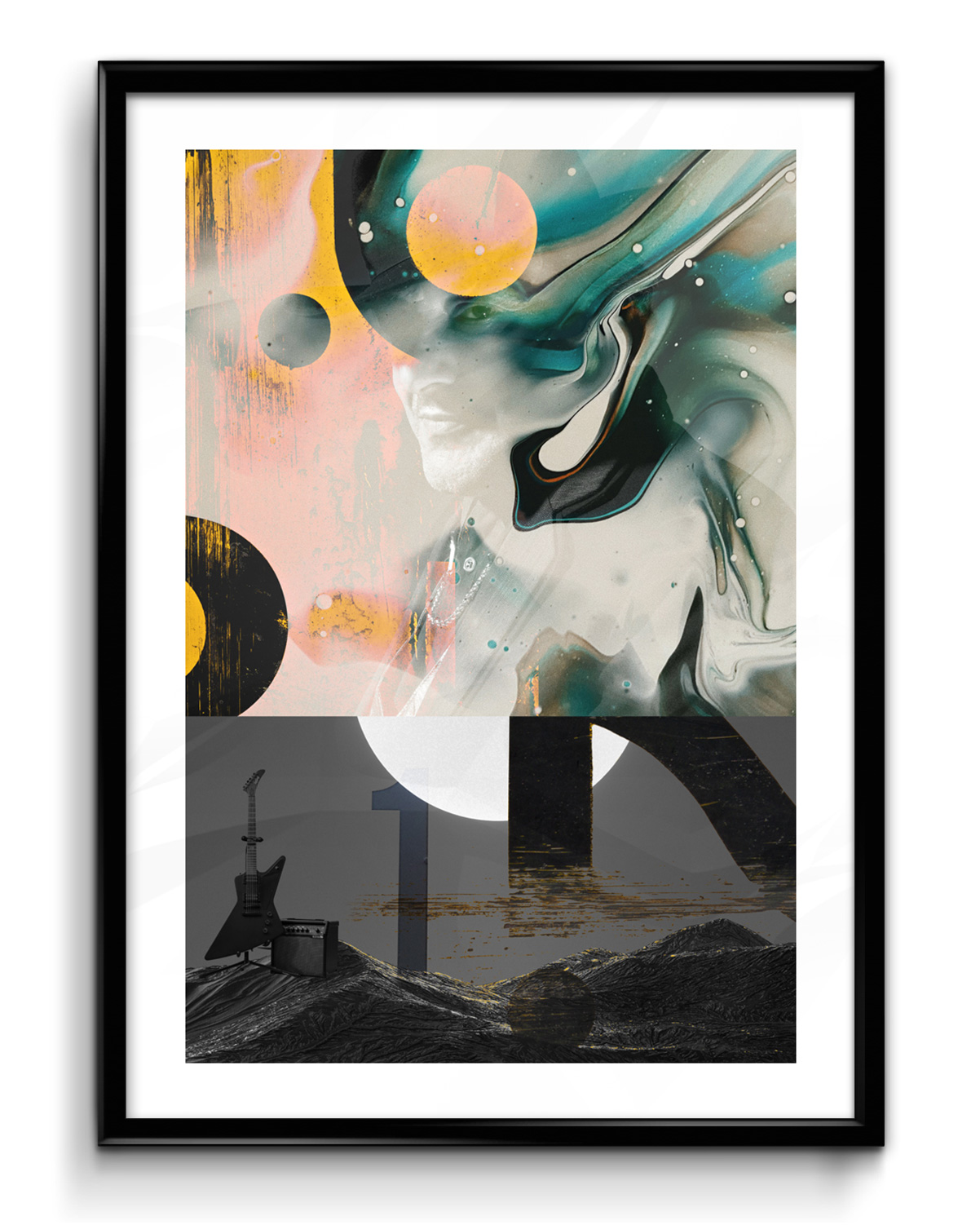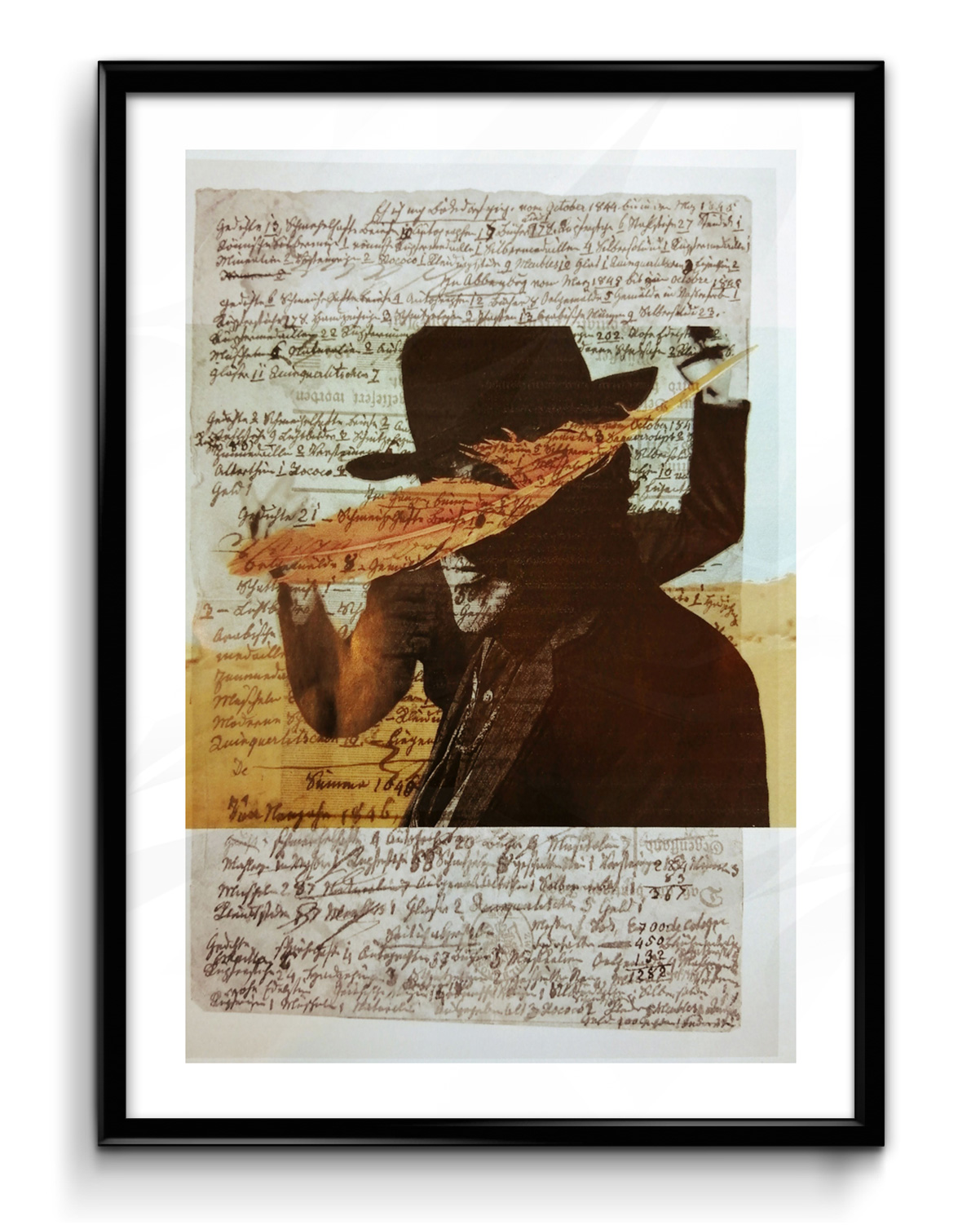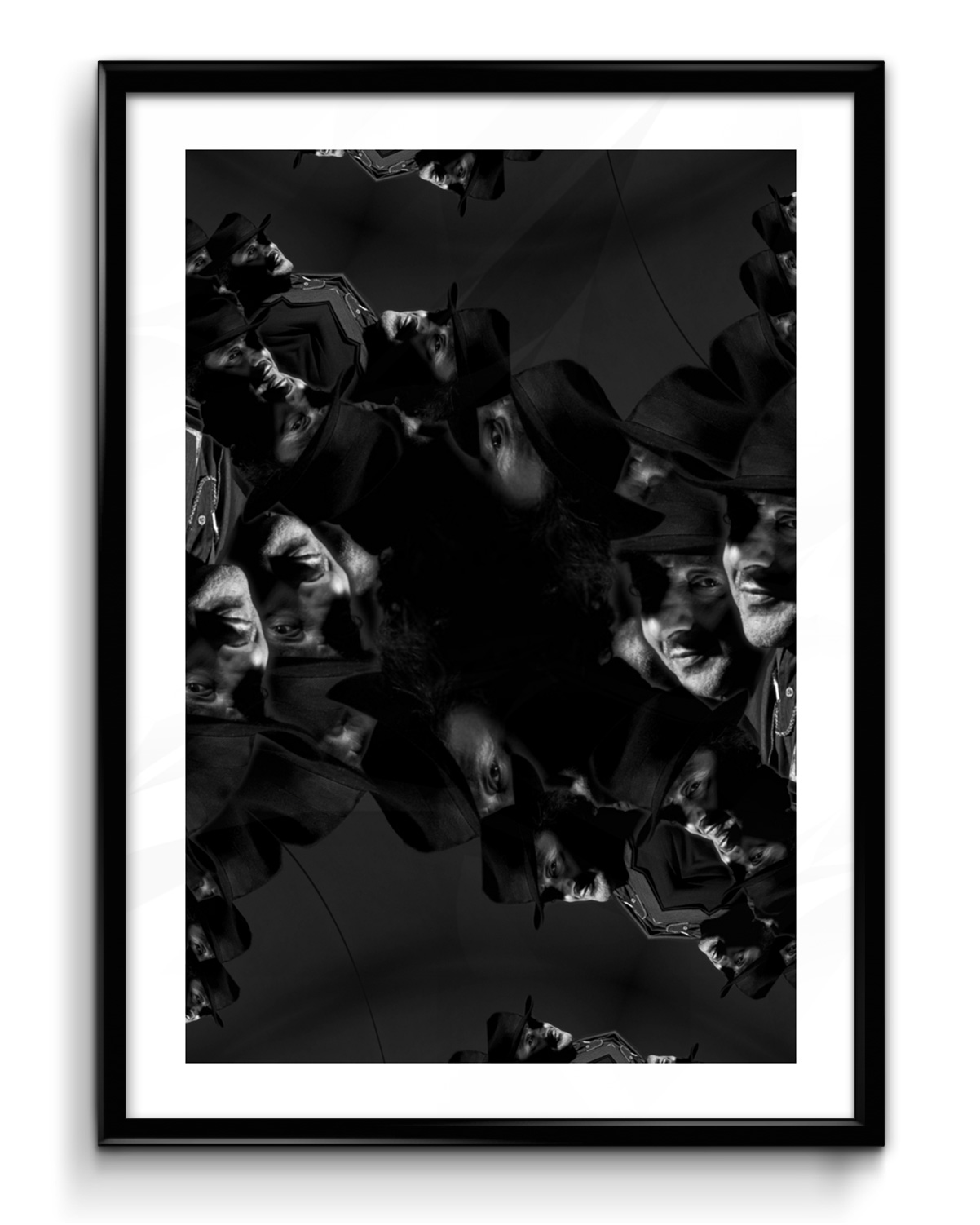en collaboration avec / in collaboration with
PARIS ANIM’ Centre Rachid Taha
HOMMAGE A RACHID TAHA
May 09, 2023 - June 03, 2023
vernissage & inauguration
May 11, 2023
vernissage & inauguration
May 11, 2023
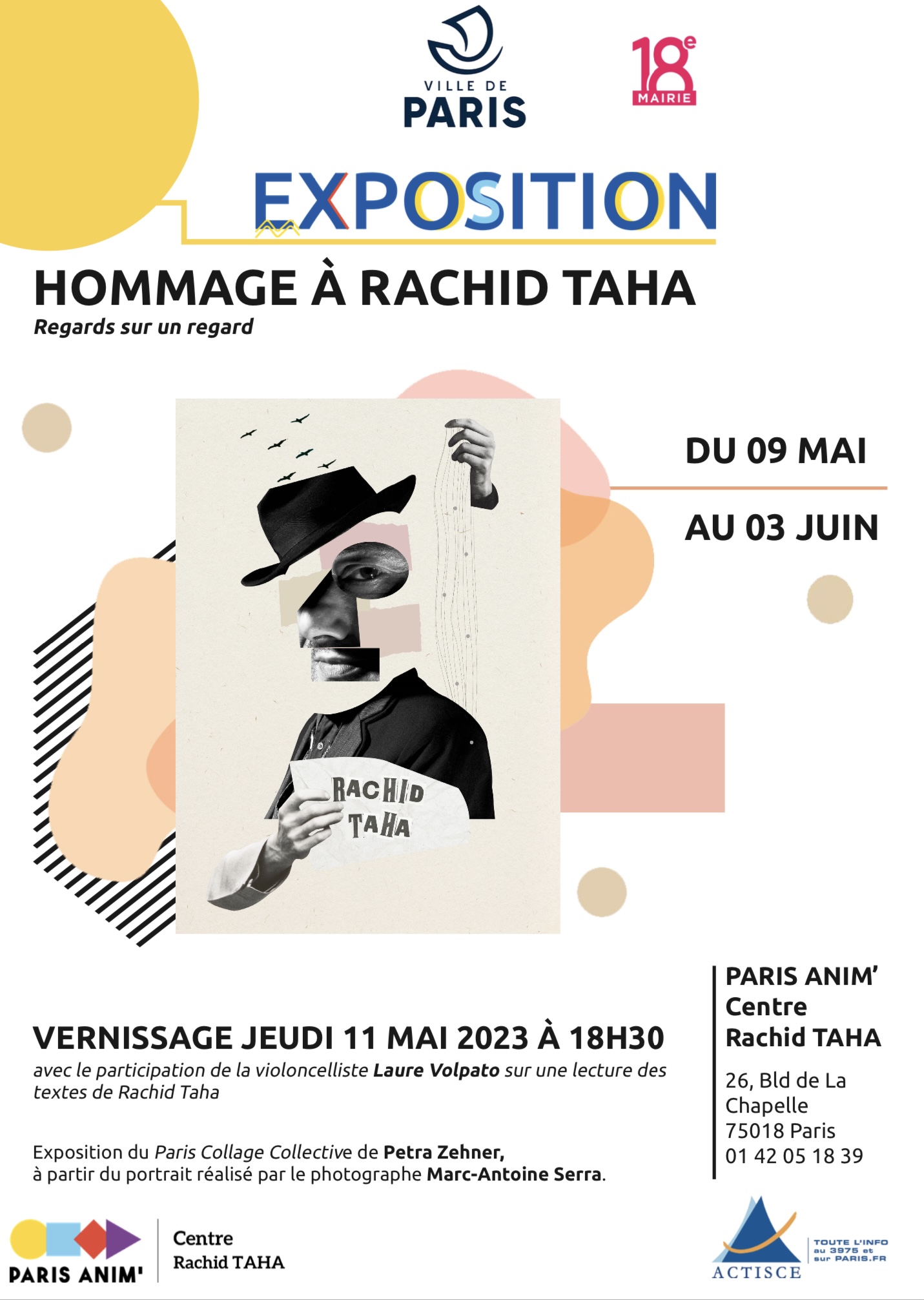
Pour cet
Hommage à Rachid Taha –
inutile de le présenter
- nous avons reçu plus de 250 collages de 45 pays
différents. 70 finalistes ont été sélectionnés pour le livre
et 34 pour l'exposition qui se déroule ici à Paris.
Si vous souhaitez voir tous les collages créés pour cet open call, veuillez consulter le hashtag #pccrachidtaha sur Instagram.
Un grand merci à tous ceux qui ont contribué, et nous espérons que vous êtes aussi ravis par cette exposition que nous.
Rachid Taha was one of the most charismatic and influential singers to come out of France. He first gained attention as the front man of the band Carte de Séjour, and later emerged as a solo artist who gained a worldwide hit with his cover of “Ya Rayah” - a song that spoke of the hardships of the immigrant experience. He was famous for his twists on classic material, from his Arabic-language reworking of The Clash’s “Rock the Casbah” to covers of mid-century Middle Eastern love songs. Born in northwestern Algeria in 1958, Taha grew up with raï music — an urban, countercultural style in his home country. In 1981, Taha founded his first band, the politically named Carte de Séjour — the French term for “residency permit” — in which he was lead singer, lyricist and manager. The band’s name was only the beginning of his political engagement, especially in addressing the status of working-class immigrants. Rachid Taha was passionate in claiming his North African identity. He was an early member of the collective Africa Express, brought together by Damon Albarn of Blur and Gorillaz. He performed with the group often, starting with its very first show, an appearance at the Glastonbury Festival in 2007, and all the way through to performances with the Orchestra of Syrian Musicians in 2016.
For this Hommage to Rachid Taha, we received over 250 collage portraits from 45 different countries. 70 finalists were chosen for the print edition of this open call, and 34 for the exhibition here in Paris.
If you want to see all the work created for this Open Call, please check out the hashtag #pccrachidtaha on Instagram.
Many thanks to everyone who contributed, and we hope you are as excited about this exhibition as we are.
Si vous souhaitez voir tous les collages créés pour cet open call, veuillez consulter le hashtag #pccrachidtaha sur Instagram.
Un grand merci à tous ceux qui ont contribué, et nous espérons que vous êtes aussi ravis par cette exposition que nous.
Rachid Taha was one of the most charismatic and influential singers to come out of France. He first gained attention as the front man of the band Carte de Séjour, and later emerged as a solo artist who gained a worldwide hit with his cover of “Ya Rayah” - a song that spoke of the hardships of the immigrant experience. He was famous for his twists on classic material, from his Arabic-language reworking of The Clash’s “Rock the Casbah” to covers of mid-century Middle Eastern love songs. Born in northwestern Algeria in 1958, Taha grew up with raï music — an urban, countercultural style in his home country. In 1981, Taha founded his first band, the politically named Carte de Séjour — the French term for “residency permit” — in which he was lead singer, lyricist and manager. The band’s name was only the beginning of his political engagement, especially in addressing the status of working-class immigrants. Rachid Taha was passionate in claiming his North African identity. He was an early member of the collective Africa Express, brought together by Damon Albarn of Blur and Gorillaz. He performed with the group often, starting with its very first show, an appearance at the Glastonbury Festival in 2007, and all the way through to performances with the Orchestra of Syrian Musicians in 2016.
For this Hommage to Rachid Taha, we received over 250 collage portraits from 45 different countries. 70 finalists were chosen for the print edition of this open call, and 34 for the exhibition here in Paris.
If you want to see all the work created for this Open Call, please check out the hashtag #pccrachidtaha on Instagram.
Many thanks to everyone who contributed, and we hope you are as excited about this exhibition as we are.
